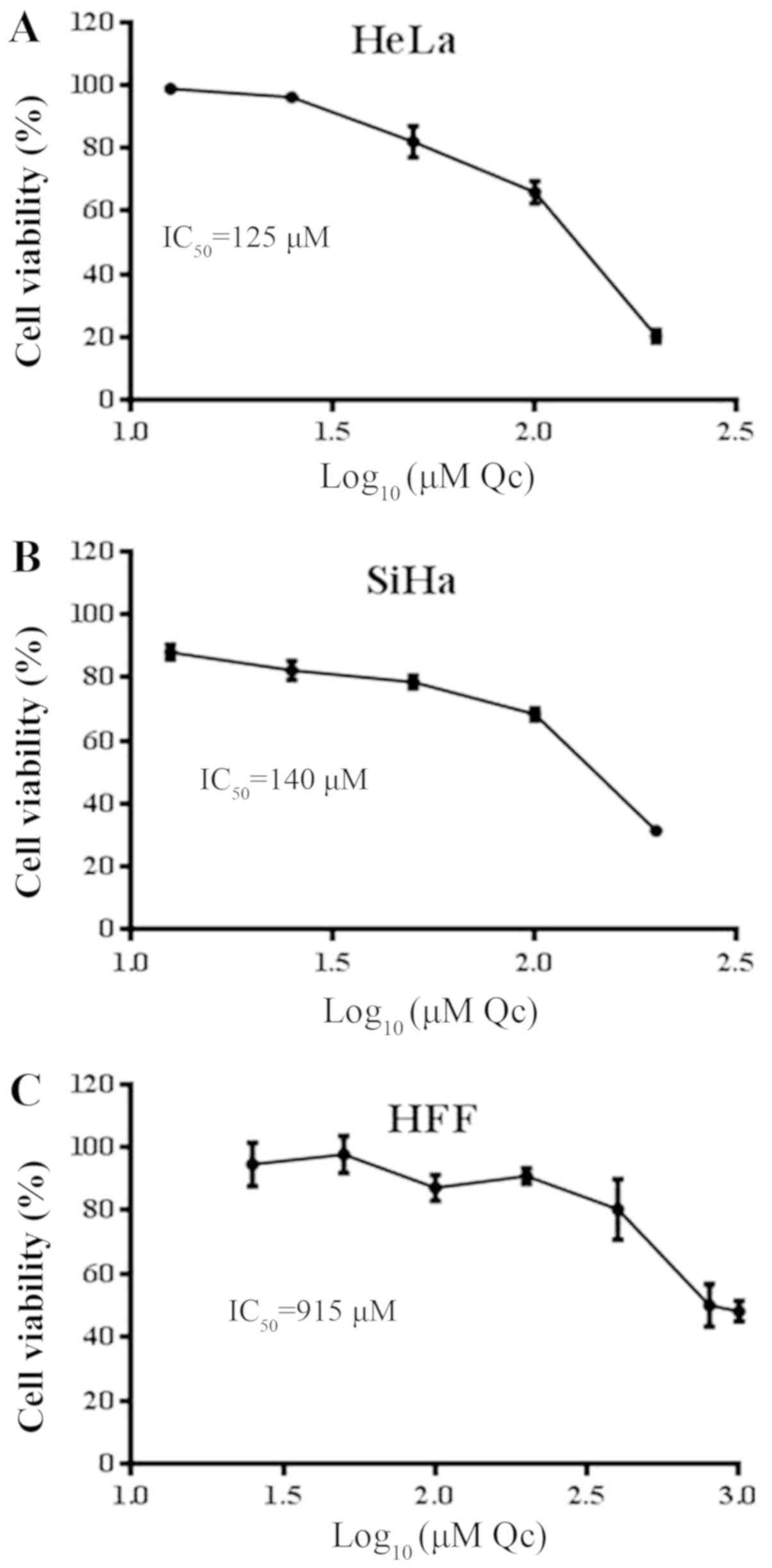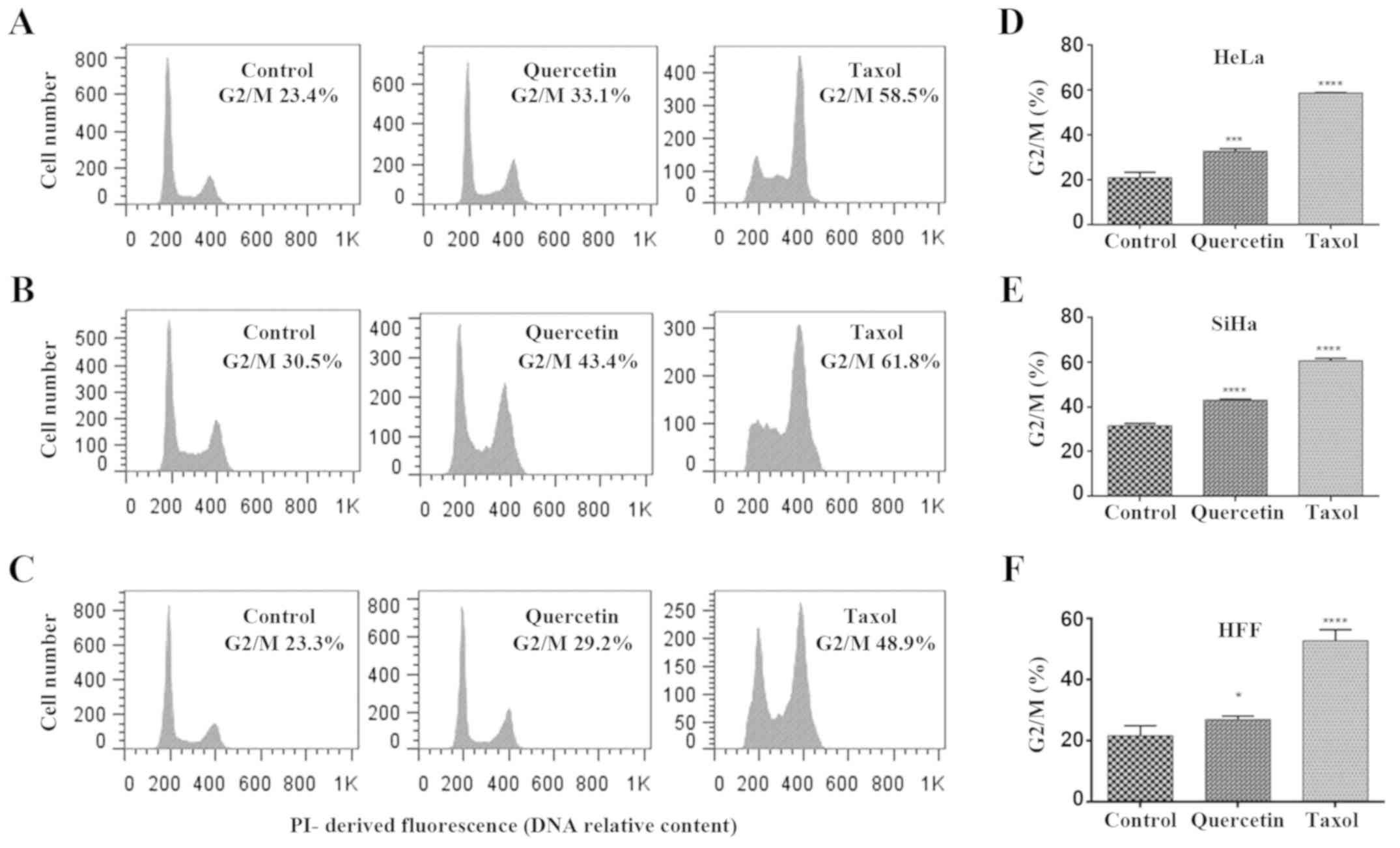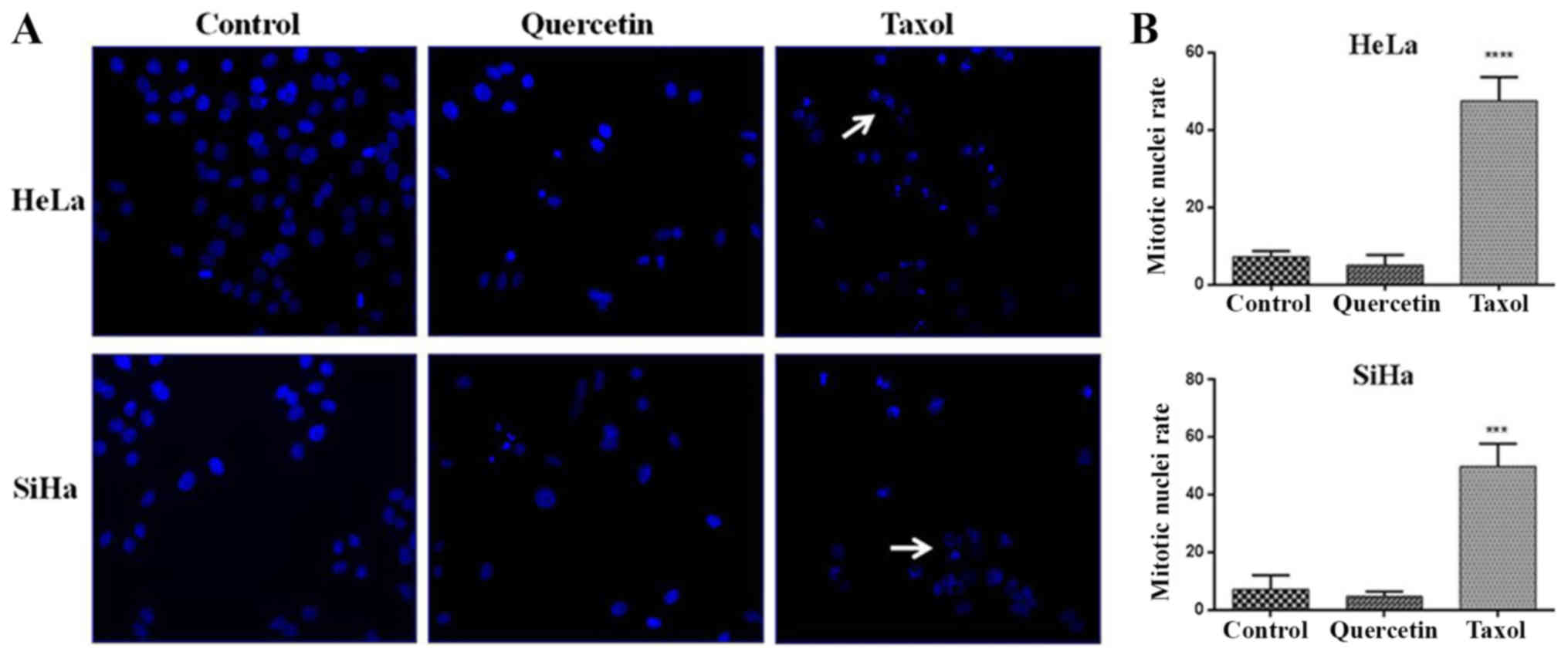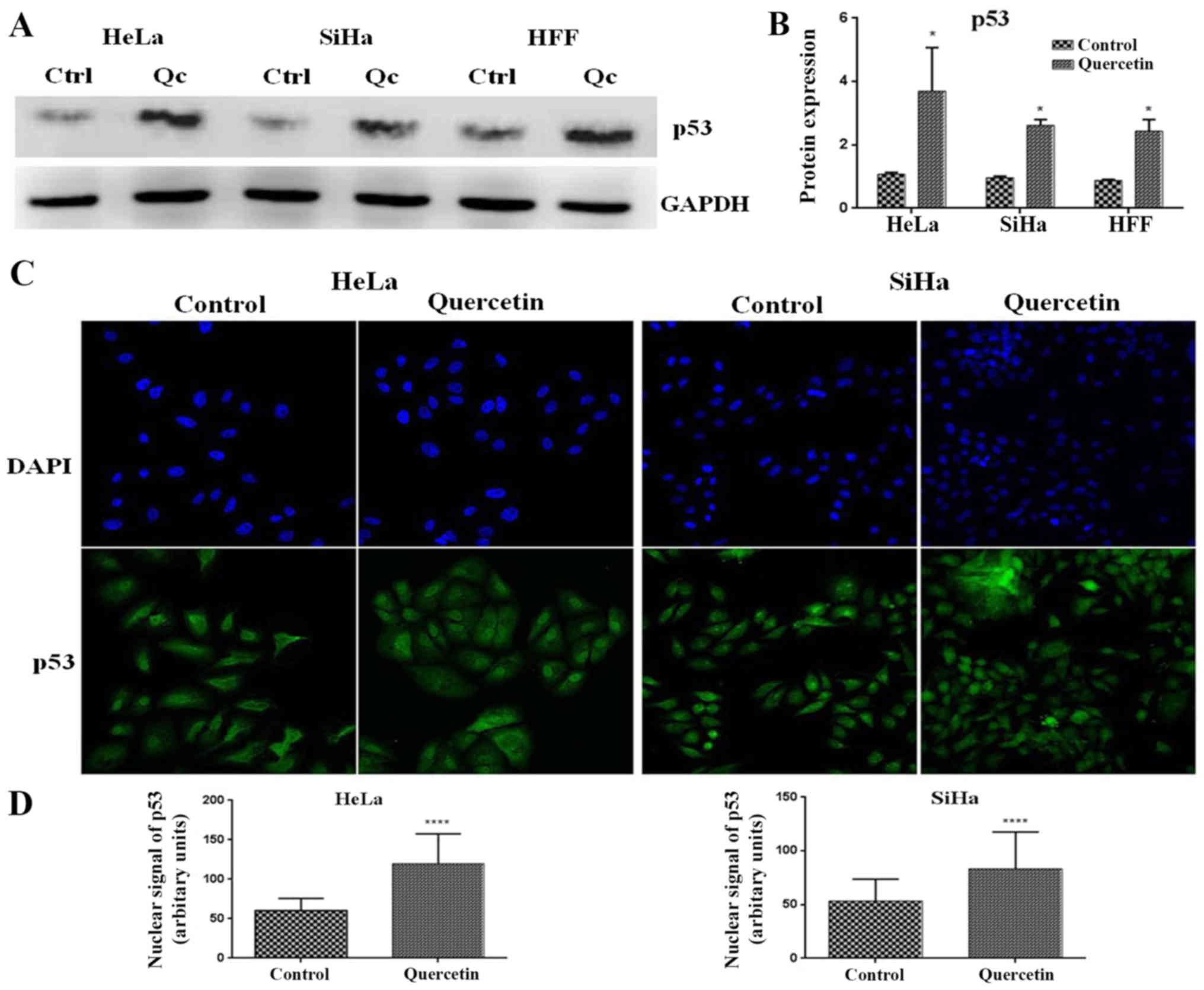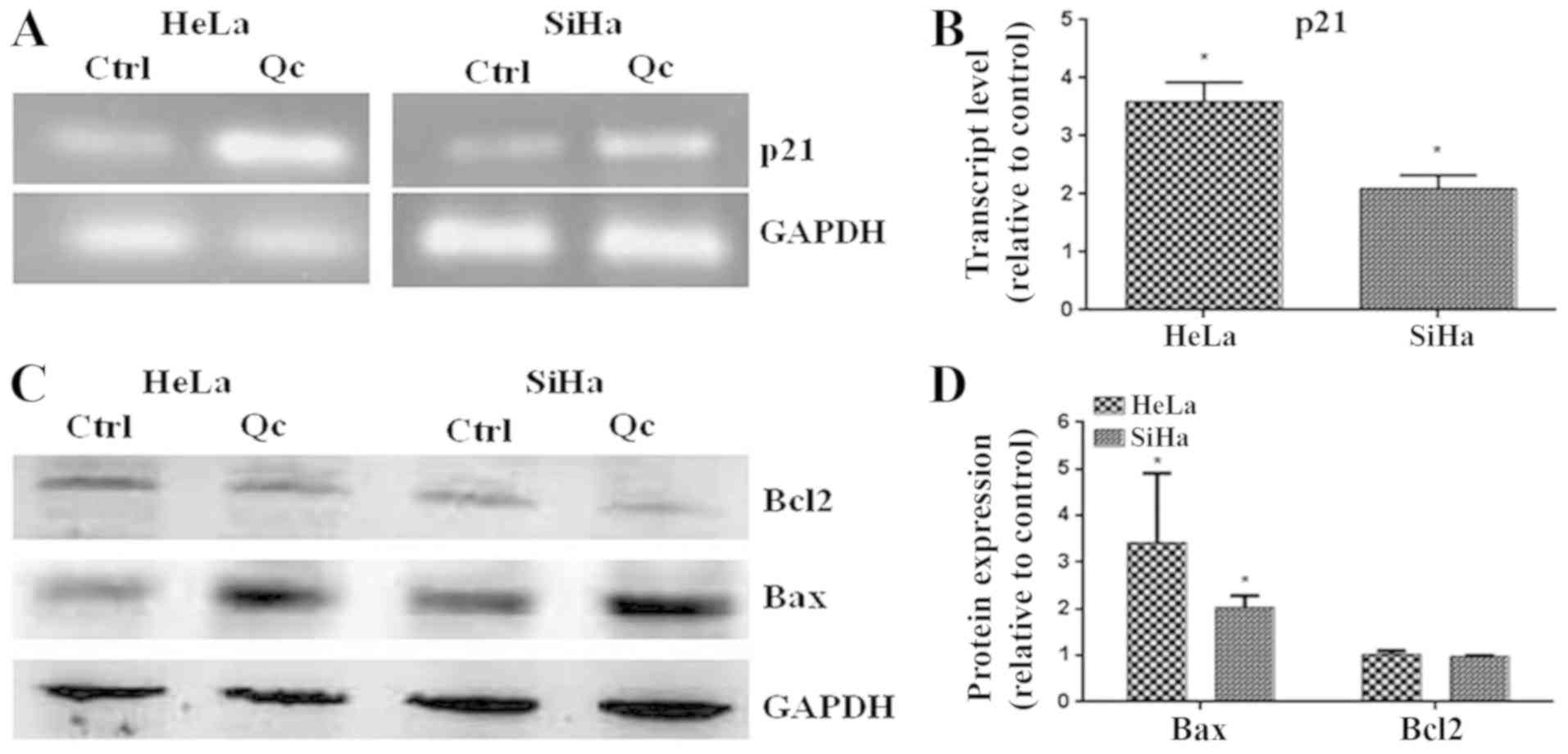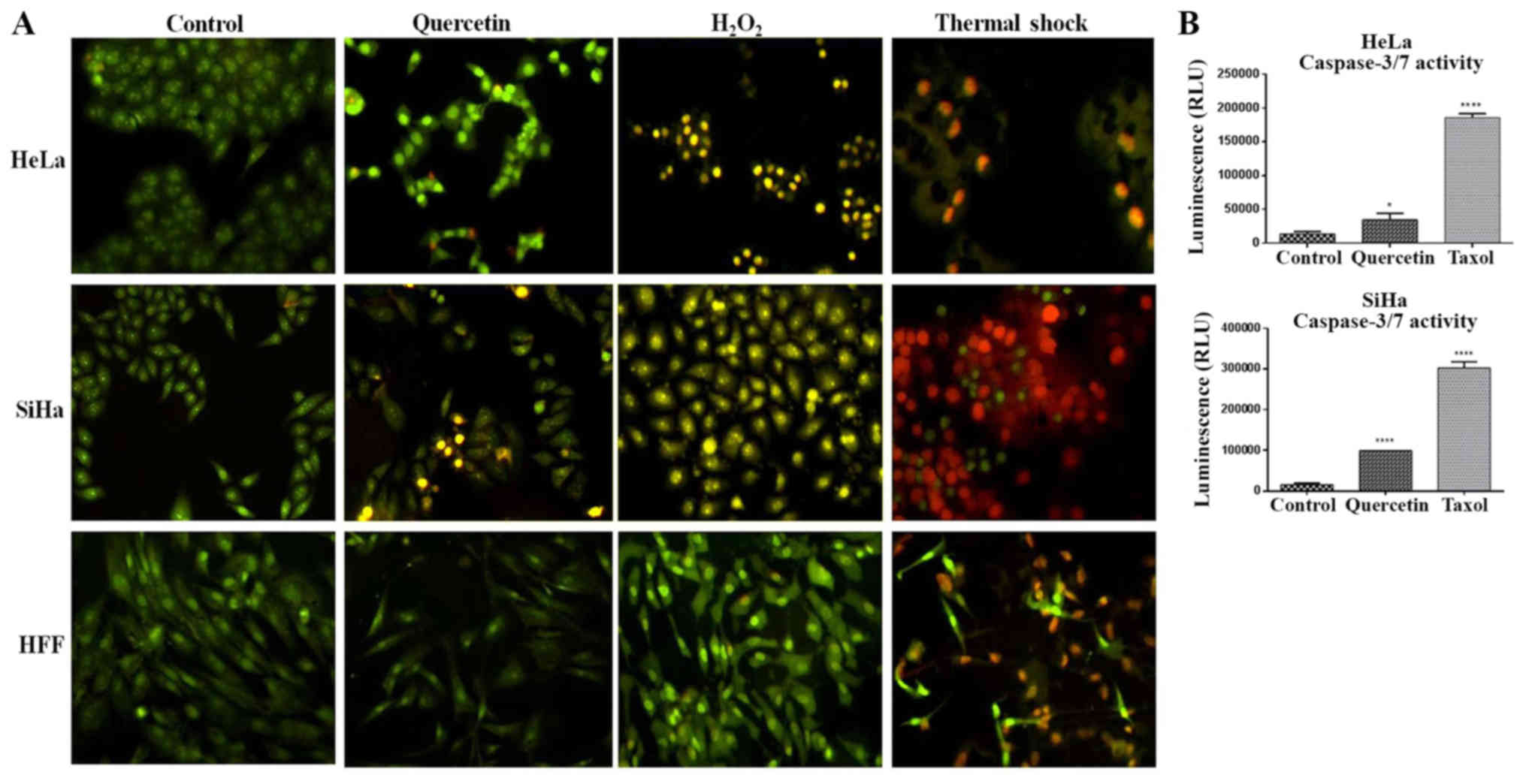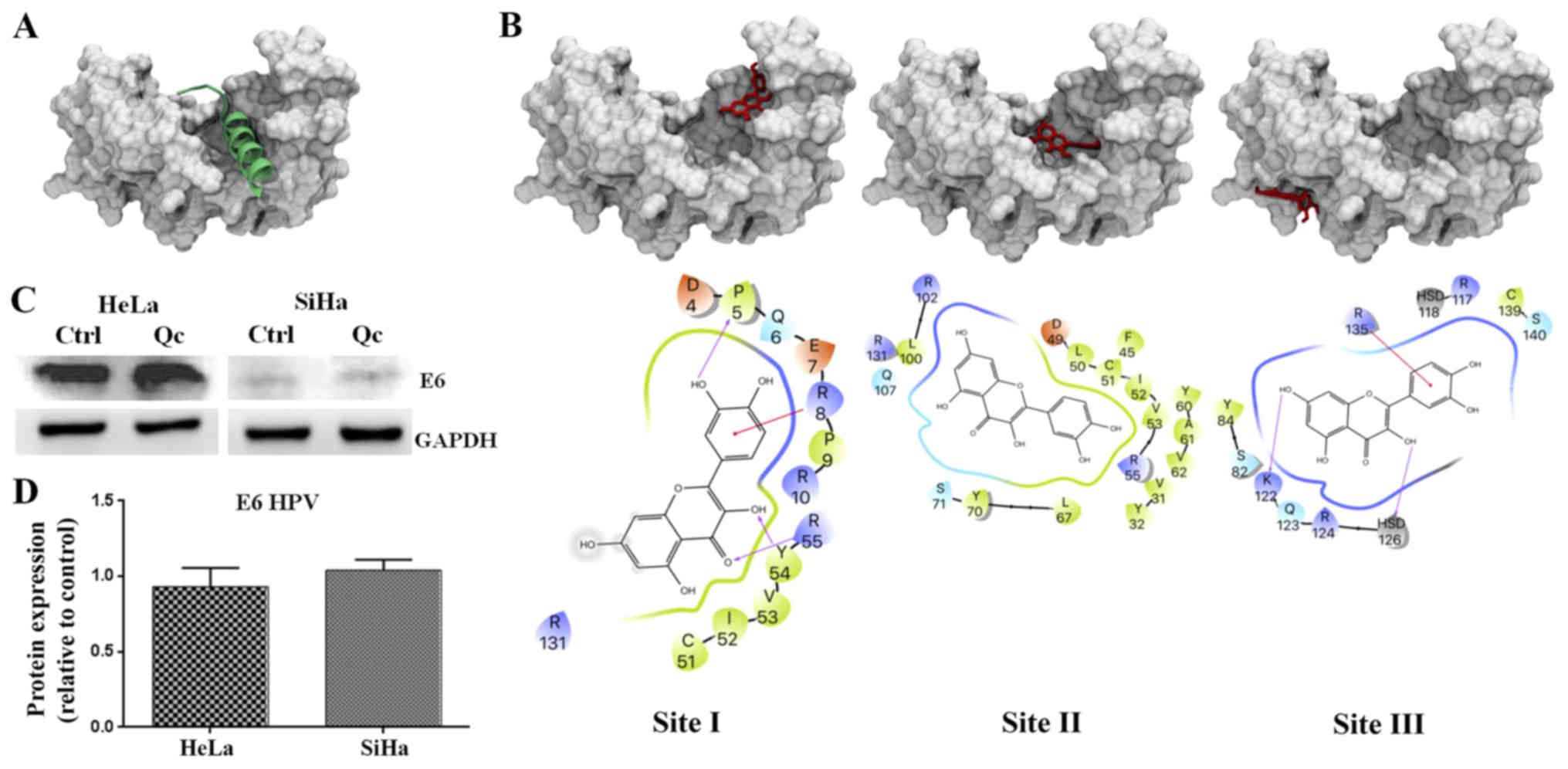|
1
|
Marth C, Landoni F, Mahner S, McCormack M,
Gonzalez-Martin A and Colombo N; ESMO Guidelines Committee, :
Cervical cancer: ESMO clinical practice guidelines for diagnosis,
treatment and follow-up. Ann Oncol. 28 Suppl_4:iv72–iv83. 2017.
View Article : Google Scholar : PubMed/NCBI
|
|
2
|
Dürst M, Gissmann L, Ikenberg H and zur
Hausen H: A papillomavirus DNA from a cervical carcinoma and its
prevalence in cancer biopsy samples from different geographic
regions. Proc Natl Acad Sci USA. 80:3812–3815. 1983. View Article : Google Scholar : PubMed/NCBI
|
|
3
|
Gardiol D, Kühne C, Glaunsinger B, Lee SS,
Javier R and Banks L: Oncogenic human papillomavirus E6 proteins
target the discs large tumour suppressor for proteasome-mediated
degradation. Oncogene. 18:5487–5496. 1999. View Article : Google Scholar : PubMed/NCBI
|
|
4
|
Nakagawa S and Huibregtse J: Human
scribble (Vartul) is targeted for ubiquitin-mediated degradation by
the high-risk papillomavirus E6 proteins and the E6AP
ubiquitin-protein ligase. Mol Cell Biol. 20:8244–8253. 2000.
View Article : Google Scholar : PubMed/NCBI
|
|
5
|
Ansari T, Brimer N and Vande Pol SB:
Peptide interactions stabilize and restructure human papillomavirus
type 16 E6 to interact with p53. J Virol. 86:11386–11391. 2012.
View Article : Google Scholar : PubMed/NCBI
|
|
6
|
Martinez-Zapien D, Ruiz FX, Poirson J,
Mitschler A, Ramirez J, Forster A, Cousido-Siah A, Masson M, Vande
Pol S, Podjarny A, et al: Structure of the E6/E6AP/p53 complex
required for HPV-mediated degradation of p53. Nature. 529:541–545.
2016. View Article : Google Scholar : PubMed/NCBI
|
|
7
|
Scheffner M, Huibregtse JM, Vierstra RD
and Howley PM: The HPV-16 E6 and E6-AP complex functions as an
ubiquitin-protein ligase in the ubiquitination of p53. Cell.
75:495–505. 1993. View Article : Google Scholar : PubMed/NCBI
|
|
8
|
Huibregtse JM, Scheffner M and Howley PM:
A cellular protein mediates association of p53 with the E6
oncoprotein of human papillomavirus types 16 or 18. EMBO J.
10:4129–4135. 1991. View Article : Google Scholar : PubMed/NCBI
|
|
9
|
Hurlin PJ, Kaur P, Smith PP, Perez-Reyes
N, Blanton RA and McDougall JK: Progression of human papillomavirus
type 18-immortalized human keratinocytes to a malignant phenotype.
Proc Natl Acad Sci USA. 88:570–574. 1991. View Article : Google Scholar : PubMed/NCBI
|
|
10
|
Chen J: The cell-cycle arrest and
apoptotic functions of p53 in tumor initiation and progression.
Cold Spring Harb Perspect Med. 6:a0261042016. View Article : Google Scholar : PubMed/NCBI
|
|
11
|
Gulati N, Laudet B, Zohrabian VM, Murali R
and Jhanwar-Uniyal M: The antiproliferative effect of quercetin in
cancer cells is mediated via inhibition of the PI3K-Akt/PKB
pathway. Anticancer Res. 26:1177–1181. 2006.PubMed/NCBI
|
|
12
|
Metodiewa D, Jaiswal AK, Cenas N,
Dickancaité E and Segura-Aguilar J: Quercetin may act as a
cytotoxic prooxidant after its metabolic activation to semiquinone
and quinoidal product. Free Radic Biol Med. 26:107–116. 1999.
View Article : Google Scholar : PubMed/NCBI
|
|
13
|
Srivastava S, Somasagara RR, Hegde M,
Nishana M, Tadi SK, Srivastava M, Choudhary B and Raghavan SC:
Quercetin, a natural flavonoid interacts with DNA, arrests cell
cycle and causes tumor regression by activating mitochondrial
pathway of apoptosis. Sci Rep. 6:240492016. View Article : Google Scholar : PubMed/NCBI
|
|
14
|
Qiao Y, Cao J, Xie L and Shi X: Cell
growth inhibition and gene expression regulation by
(−)-epigallocatechin-3-gallate in human cervical cancer cells. Arch
Pharm Res. 32:1309–1315. 2009. View Article : Google Scholar : PubMed/NCBI
|
|
15
|
Cherry JJ, Rietz A, Malinkevich A, Liu Y,
Xie M, Bartolowits M, Davisson VJ, Baleja J and Androphy EJ:
Structure based identification and characterization of flavonoids
that disrupt human papillomavirus-16 E6 function. PLoS One.
8:e845062013. View Article : Google Scholar : PubMed/NCBI
|
|
16
|
Tanigawa S, Fujii M and Hou DX:
Stabilization of p53 is involved in quercetin-induced cell cycle
arrest and apoptosis in HepG2 cells. Biosci Biotechnol Biochem.
72:797–804. 2008. View Article : Google Scholar : PubMed/NCBI
|
|
17
|
Thangasamy T, Sittadjody S, Lanza-Jacoby
S, Wachsberger PR, Limesand KH and Burd R: Quercetin selectively
inhibits bioreduction and enhances apoptosis in melanoma cells that
overexpress tyrosinase. Nutr Cancer. 59:258–268. 2007. View Article : Google Scholar : PubMed/NCBI
|
|
18
|
Yang GY, Liao J, Kim K, Yurkow EJ and Yang
CS: Inhibition of growth and induction of apoptosis in human cancer
cell lines by tea polyphenols. Carcinogenesis. 19:611–616. 1998.
View Article : Google Scholar : PubMed/NCBI
|
|
19
|
Mohan S, Bustamam A, Ibrahim S, Al-Zubairi
AS, Aspollah M, Abdullah R and Elhassan MM: In vitro
ultramorphological assessment of apoptosis on CEMss induced by
linoleic acid-rich fraction from Typhonium flagelliforme tuber.
Evid Based Complement Alternat Med 2011. 4218942011.
|
|
20
|
Zanier K, Charbonnier S, Sidi AO, McEwen
AG, Ferrario MG, Poussin-Courmontagne P, Cura V, Brimer N, Babah
KO, Ansari T, et al: Structural basis for hijacking of cellular
LxxLL motifs by papillomavirus E6 oncoproteins. Science.
339:694–698. 2013. View Article : Google Scholar : PubMed/NCBI
|
|
21
|
Jordan MA, Toso RJ, Thrower D and Wilson
L: Mechanism of mitotic block and inhibition of cell proliferation
by taxol at low concentrations. Proc Natl Acad Sci USA.
90:9552–9556. 1993. View Article : Google Scholar : PubMed/NCBI
|
|
22
|
Hengstermann A, Linares LK, Ciechanover A,
Whitaker NJ and Scheffner M: Complete switch from Mdm2 to human
papillomavirus E6-mediated degradation of p53 in cervical cancer
cells. Proc Natl Acad Sci USA. 98:1218–1223. 2001. View Article : Google Scholar : PubMed/NCBI
|
|
23
|
Van Kriekinge G, Castellsagué X, Cibula D
and Demarteau N: Estimation of the potential overall impact of
human papillomavirus vaccination on cervical cancer cases and
deaths. Vaccine. 32:733–739. 2014. View Article : Google Scholar : PubMed/NCBI
|
|
24
|
Peirson L, Fitzpatrick-Lewis D, Ciliska D
and Warren R: Screening for cervical cancer: A systematic review
and meta-analysis. Syst Rev. 2:352013. View Article : Google Scholar : PubMed/NCBI
|
|
25
|
Wätjen W, Michels G, Steffan B, Niering P,
Chovolou Y, Kampkötter A, Tran-Thi QH, Proksch P and Kahl R: Low
concentrations of flavonoids are protective in rat H4IIE cells
whereas high concentrations cause DNA damage and apoptosis. J Nutr.
135:525–531. 2005. View Article : Google Scholar : PubMed/NCBI
|
|
26
|
Laptenko O, Beckerman R, Freulich E and
Prives C: p53 binding to nucleosomes within the p21 promoter in
vivo leads to nucleosome loss and transcriptional activation. Proc
Natl Acad Sci USA. 108:10385–10390. 2011. View Article : Google Scholar : PubMed/NCBI
|
|
27
|
Charrier-Savournin FB, Château MT, Gire V,
Sedivy J, Piette J and Dulic V: p21-mediated nuclear retention of
cyclin B1-Cdk1 in response to genotoxic stress. Moll Biol Cell.
15:3965–3976. 2004. View Article : Google Scholar
|
|
28
|
Miyashita T, Krajewski S, Krajewska M,
Wang HG, Lin HK, Liebermann DA, Hoffman B and Reed JC: Tumor
suppressor p53 is a regulator of bcl-2 and bax gene expression in
vitro and in vivo. Oncogene. 9:1799–1805. 1994.PubMed/NCBI
|
|
29
|
Sax JK, Fei P, Murphy ME, Bernhard E,
Korsmeyer SJ and El-Deiry WS: BID regulation by p53 contributes to
chemosensitivity. Nat Cell Biol. 4:842–849. 2002. View Article : Google Scholar : PubMed/NCBI
|
|
30
|
Nakano K and Vousden KH: PUMA, a novel
proapoptotic gene, is induced by p53. Mol Cell. 7:683–694. 2001.
View Article : Google Scholar : PubMed/NCBI
|
|
31
|
Erster S, Mihara M, Kim RH, Petrenko O and
Moll UM: In vivo mitochondrial p53 translocation triggers a rapid
first wave of cell death in response to DNA damage that can precede
p53 target gene activation. J Biol Chem. 24:6728–6741. 2004.
|
|
32
|
Tomita Y, Marchenko N, Erster S,
Nemajerova A, Dehner A, Klein C, Pan H, Kessler H, Pancoska P and
Moll UM: WT p53, but not tumor-derived mutants, bind to Bcl2 via
the DNA binding domain and induce mitochondrial permeabilization. J
Biol Chem. 281:8600–8606. 2006. View Article : Google Scholar : PubMed/NCBI
|
|
33
|
Vidya Priyadarsini R, Senthil Murugan R,
Maitreyi S, Ramalingam K, Karunagaran D and Nagini S: The flavonoid
quercetin induces cell cycle arrest and mitochondria-mediated
apoptosis in human cervical cancer (HeLa) cells through p53
induction and NF-κB inhibition. Eur J Pharmacol. 649:84–91. 2010.
View Article : Google Scholar : PubMed/NCBI
|
|
34
|
Malecka KA, Fera D, Schultz DC,
Hodawadekar S, Reichman M, Donover PS, Murphy ME and Marmorstein R:
Identification and characterization of small molecule human
papillomavirus E6 inhibitors. ACS Chem Biol. 9:1603–1612. 2014.
View Article : Google Scholar : PubMed/NCBI
|
|
35
|
Mietz JA, Unger T, Huibregtse JM and
Howley PM: The transcriptional transactivation function of
wild-type p53 is inhibited by SV40 large T-antigen and by HPV-16 E6
oncoprotein. EMBO J. 11:5013–5020. 1992. View Article : Google Scholar : PubMed/NCBI
|
|
36
|
Cooper B, Schneider S, Bohl J, Jiang Yh,
Beaudet A and Vande Pol S: Requirement of E6AP and the features of
human papillomavirus E6 necessary to support degradation of p53.
Virology. 306:87–99. 2003. View Article : Google Scholar : PubMed/NCBI
|















